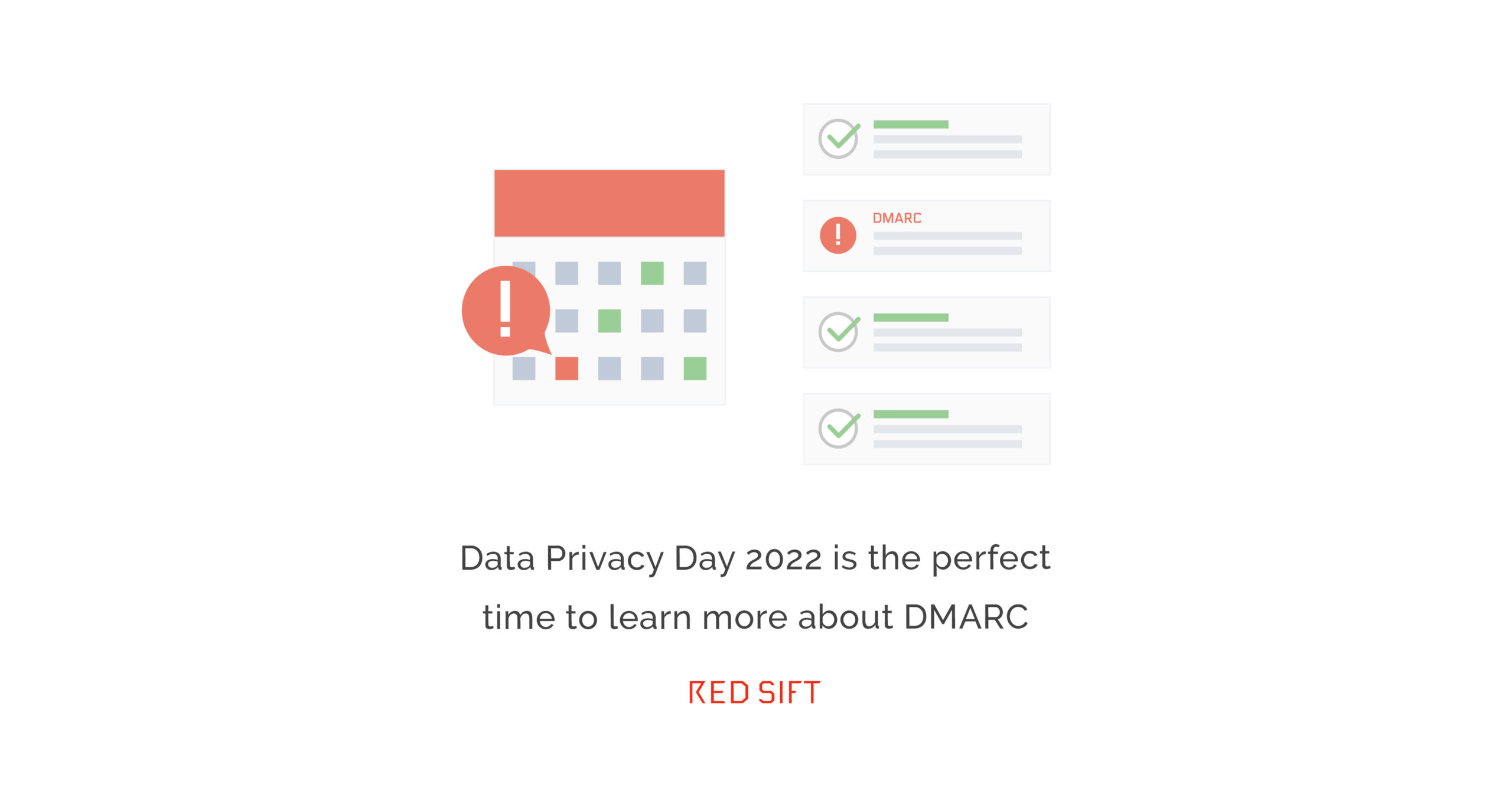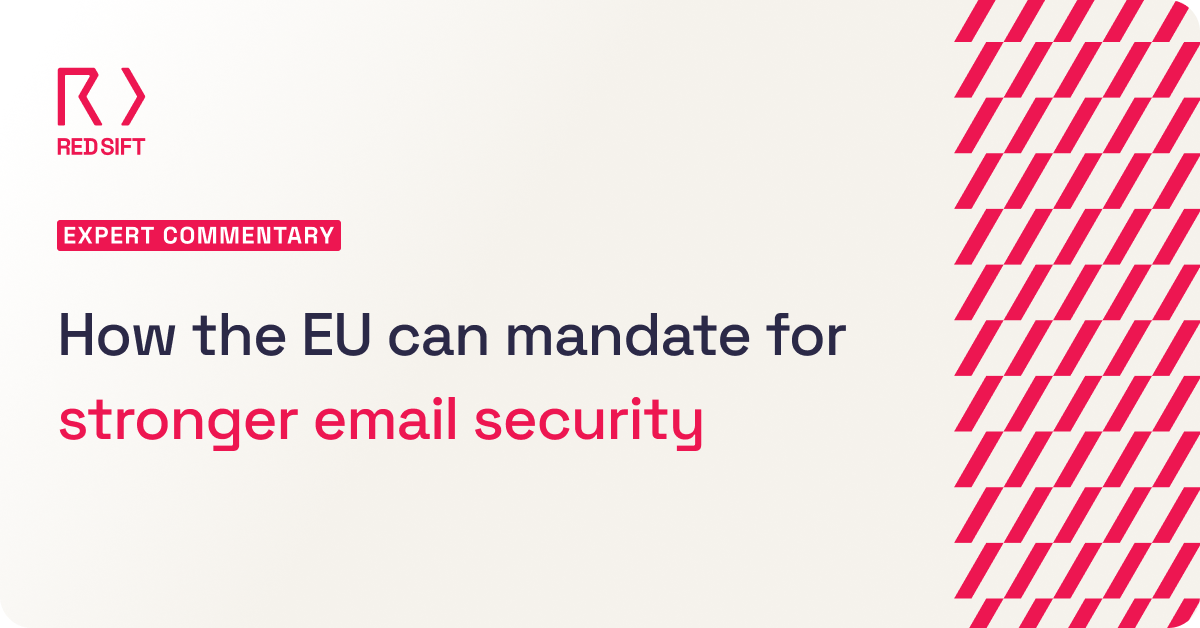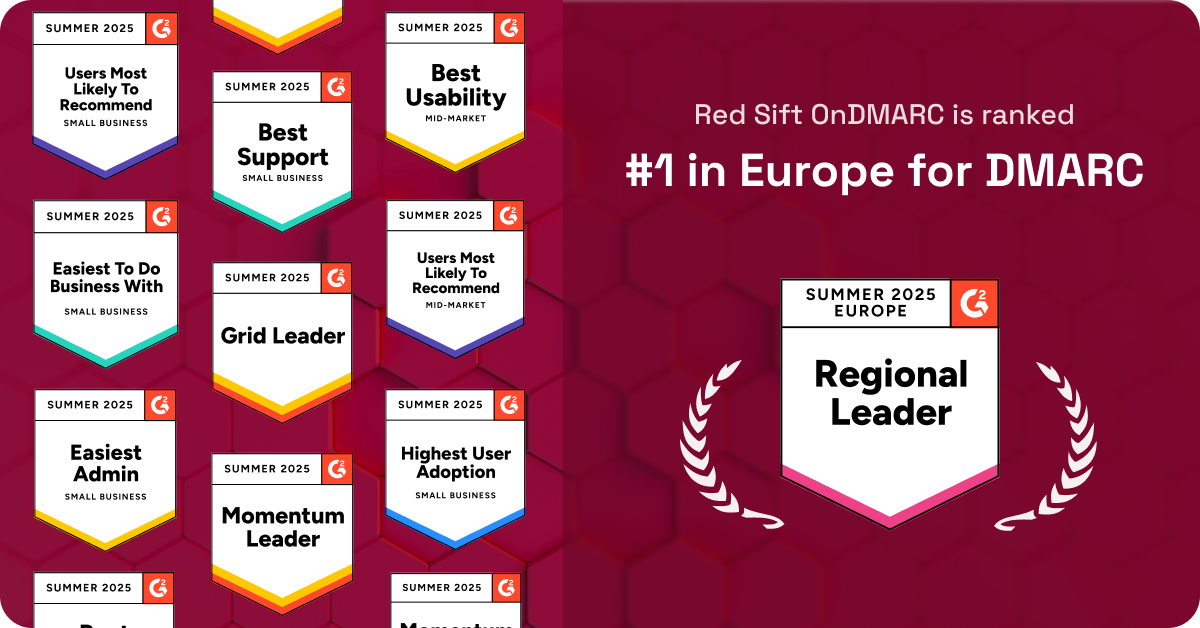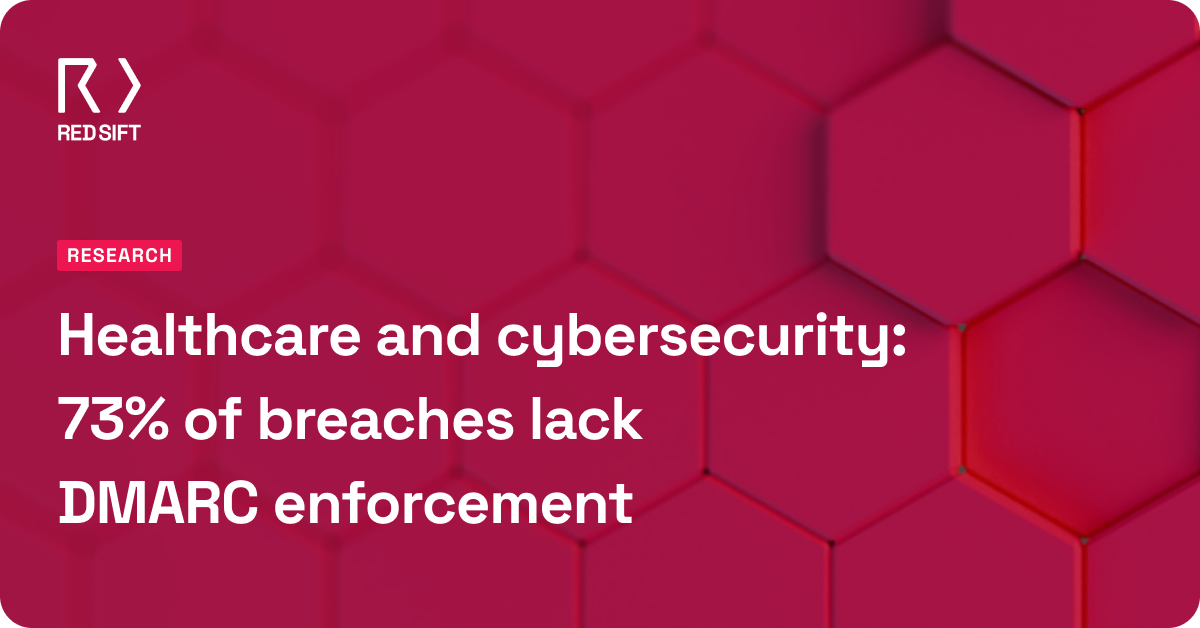January 28th, 2022 marks Data Privacy Day. It’s an international event to raise awareness and promote best practices in privacy and data protection.
But Data Privacy Day isn’t just another scribble in the diary, it’s the perfect opportunity to learn more about the cyber and email security solutions, tools, and protocols that are available to keep your data safe. One of the protocols seeing increased demand during the pandemic is DMARC – Domain-based Message Authentication, Reporting & Conformance (DMARC). DMARC is valuable in a number of ways, including helping to stop ransomware attacks that have been on the rise over the last two years.
What is DMARC?
DMARC is an outbound email security protocol that protects domains against exact impersonation (or email spoofing). This is when bad actors pretend to be you to send phishing emails to your employees, customers, and supply chain in an effort to get their hands on private data, money, or even to carry out an attack such as ransomware.
DMARC is the modern email authentication standard used by all major email servers (Office 365, Google Workspace, and commercial secure email gateways) to authenticate outbound and inbound email. When implemented by an organization at the strongest policy of p=reject, it stops bad actors from impersonating its domain to send malicious emails. It’s an open standard and is used by organizations around the world to protect brand reputations from exploitation.
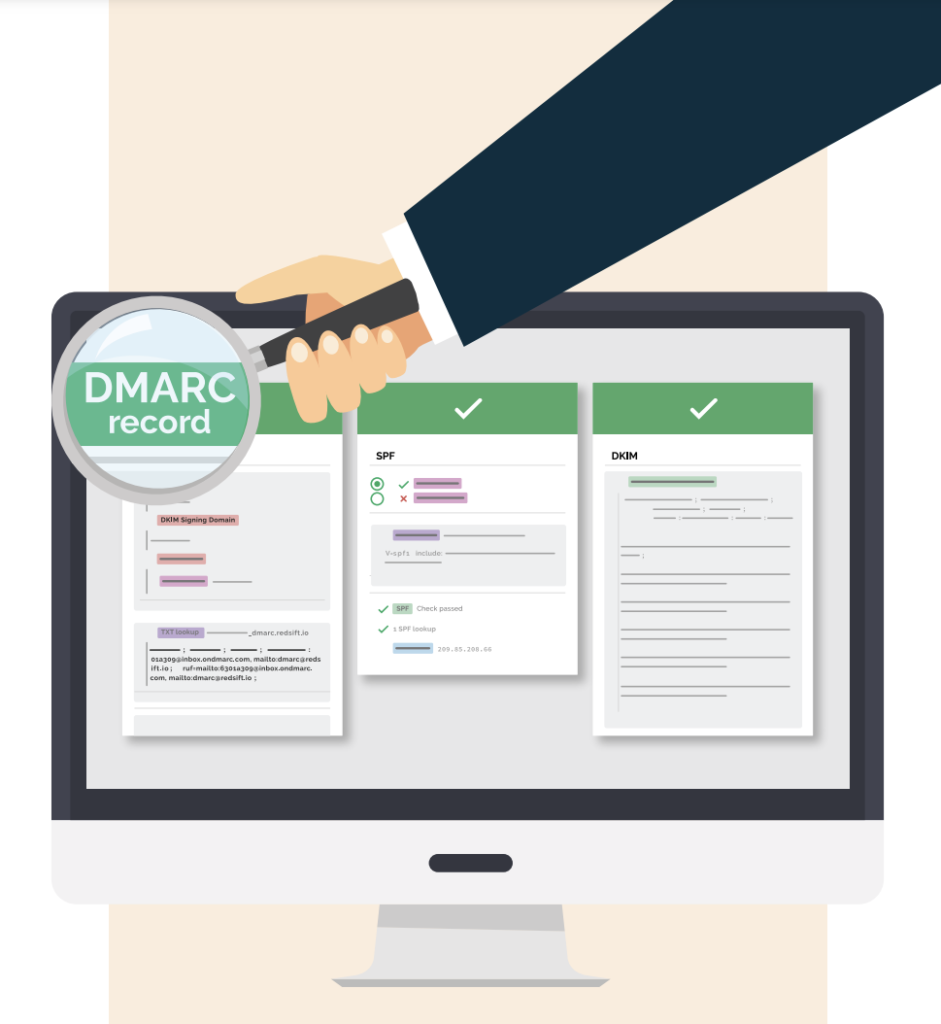
Why is DMARC seeing increased demand?
Due in part to highly publicized cyberattacks, public attention on data privacy has increased significantly over the past few years. Users are more aware of the value of their private data and are more likely to question how organizations of all sizes are using it.
In our latest whitepaper we found:
- 88% of consumers say their willingness to share personal information is based on how much they trust a company
- 81% of consumers say they will stop engaging with a brand online following widespread news of a data breach
- 64% of Americans blame the company – not the hacker – for the loss of personal data
How will DMARC protect me and my data?
DMARC is an outbound security protocol, meaning it simultaneously protects recipients and your brand reputation from being exploited. It’s important to remember that bad actors who use your domain to trick people into opening emails aren’t doing so by chance, they’re piggybacking off the weight of your brand reputation and relying on it to encourage email opens.
DMARC stops this exact domain impersonation, by telling recipient servers not to accept any emails that aren’t authenticated to have come from you. So, bad actors cannot use your domain to send phishing emails and carry out Business Email Compromise (BEC), resulting in fewer problems related to:
- Vendor fraud
- Ransomware
- CEO fraud
- Whaling
- Invoice fraud
- Spoofing emails
- Supply chain attacks
The more companies and institutions enforce a DMARC policy of p=reject for their outbound email, the safer the email ecosystem becomes overall. This is because attackers and bad actors will have fewer domains to ride on the back of to carry out attacks. As a result, more sensitive information is protected, more money is saved, and fewer attacks are successful.
Is DMARC free?
DMARC is an open standard, meaning it’s available to everyone. However, configuring it without the right tools can be a complicated and manual task. What’s worse, if set up incorrectly, it could damage your email deliverability and leave you unprotected.
That’s why we created OnDMARC, our award-winning cloud-based application that enables organizations of any size to quickly and easily implement DMARC, configuring SPF, DKIM, and DMARC for all legitimate email sources in weeks, not months.
It simplifies the complexities of DMARC by automating processes and providing clear instructions on how to block unauthorized use of your domain. This protects both inbound and outbound business email communications with customers, suppliers, and partners by blocking vendor fraud, account takeovers, and email spoofing.
Double down on data privacy with OnDMARC
Keen to find out more? Check out OnDMARC for yourself with a free 14-day trial, no commitment necessary.

